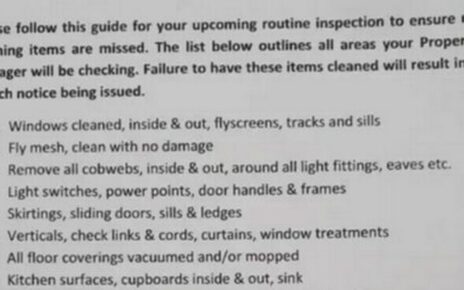
As the cost of living crisis bites, the number of people taking in a lodger to help with the bills is growing, as is demand. And the benefits are not just financial.
Rental costs in Britain have increased by 20 per cent since the beginning of the Covid-19 pandemic, with the capital taking the biggest hit.
According to estate and letting agent Hamptons, Londoners spend around 62 per cent of their post-tax income on rent, on average.
The lodger
‘I spent the first lockdown at home by myself… and realised I was lonely’
Unaffordable rent is one of the reasons why Owen Ozkan, 32, had to move out of his one-bedroom flat in London Fields, Hackney, east London.
The young professional had been working full-time in finance, allowing him to afford his monthly rental costs. But when he decided to further his education, the expense became a barrier. ‘I wanted a career change but couldn’t afford to continue paying £1,300 per month in rent while studying,’ explains Owen.
However, the fact that becoming a lodger made financial sense for him wasn’t the only reason for the move to his current home.

In November 2020, while searching for more affordable accommodation, he discovered Share And Care Homeshare. It’s an arrangement where an older person opens their home to someone, often younger, who can provide a level of practical help with daily tasks such as shopping or cooking as well as friendship and companionship, in exchange for low-cost accommodation.
‘I spent the first lockdown at home by myself and was really lonely,’ says Owen. ‘When I realised there was a way I could live with someone like-minded who I would enjoy spending time with, while at the same time enjoy the financial benefits that come with the arrangement, I jumped at the chance.’
Share And Care Homeshare matched Owen with a retired artist, Douglas, who, in his late eighties and with no family living close by, was looking for someone to share his three-bedroom home in Hampstead, north-west London.
Owen pays £150 a month rent for a double room with utility bills included, in return for doing some simple household tasks and spending time with his householder.

‘I do the grocery shopping and prepare and cook evening meals for us both. I also take Douglas to the GP for his vaccinations and spend time with him, watching documentaries on TV, going for walks, visiting his favourite places for coffee or lunch or simply staying at home discussing his art,’ says Owen.
‘Sadly because of his eyesight, he’s no longer able to paint. But he enjoys showing me all his work and the type of art he enjoys.’ Living with Douglas has impacted Owen enormously, not only from a financial angle but from an emotional one, too – something Amanda Clarke, co-founder at Share And Care Homeshare, acknowledges is a big part of the social scheme.
‘For the sharer, it offers them an affordable home – not just a room – and offers company to the sharer, too, which they tell us they really enjoy and appreciate,’ says Amanda.

Although Owen has now finished his studies and could afford to get a place of his own, he has, at least for the time being, decided to stay put. ‘I thought after my studies ended I would go back to my old way of life, renting somewhere on my own,’ he says.
‘But Douglas and I have developed a bond. The feeling of appreciation I get when I walk through the front door benefits my life in so many ways.’
He adds: ‘It seems, post pandemic, that the world has become a tougher place to survive. Rent prices have gone up, salaries have gone down. Everyday life is so much more difficult now. It has made me appreciate what I have with my householder.
‘When I moved into this house I never thought I would gain someone who I now think of as family. It’s pretty amazing.’
The landlady
‘I welcome the company. I’m still friends with one of my first lodgers, from back in 1997’
On the other side of the rental market, if you have a spare room available in your home, taking in a lodger might be your ticket to offset the cost of living crisis.
According to a survey taken earlier this year by flatshare website SpareRoom, 91 per cent of landlords who previously rented an extra bedroom to lodgers are now considering reopening their homes.
Sarah Stones has a long history of renting out her spare room to lodgers. Having taken a break from sharing her home during the pandemic, she soon realised that, with rising living costs and soaring energy bills, it was a good time to open up her home again.

‘I decided it would be a good stream of income,’ says Sarah, 54, a motivational coach and owner of Plain Sailing Motivation.
‘Even though I’m environmentally careful by turning off lights in the home and keeping the central heating on at a minimum, my gas and electricity bills have doubled over the last 12 months. I couldn’t see any other way of being able to cut back on spending elsewhere.’
Sarah advertised a room in her two-bed semi-detached Victorian house in St Neots, Cambridgeshire, earlier this year via MondaytoFriday.com, a rental website originally set up to cater for professional people who need a place to stay in the week, giving homeowners extra income while allowing them their home back at weekends. She has already rented out her spare room to three different lodgers this year, for £550 a month.
‘I currently have a lady in her mid-forties living with me. She arrives each week on Monday evening after work and stays until Friday morning, working in Peterborough during the day.’ Renting out a room also offers a financial safety net for self-employed Sarah should anything happen with her business.

However, having lodgers hasn’t been all sunshine and roses. She has had to turn down unwanted advances from a male lodger, as well as politely ask one lodger to move out when their behaviour became intolerable.
Yet for Sarah, the emotional and financial benefits far outweigh the negatives. ‘I like having my own space at weekends, that’s really important to me,’ she says. ‘But because I often work from home on my own, having someone coming in and out of the property during the week provides good company.
‘I’m still friends with one of my very first lodgers from back in 1997. It’s a really nice way of getting to know different people.’

Worryingly, since the cost of living began to escalate, Sarah says she has noted a change in profile among potential lodgers.
‘I was really shocked when one was planning to rent from me Monday to Friday, and then stay with friends or relatives at the weekends,’ she says. ‘I’m getting the picture that my current lodger might be doing the same.’
It appears as though sofa-surfing is on the rise, with nearly one in three adults saying they could be forced to crash on family and friends’ floors and sofas as a result of unpredictable housing costs, according to the human rights organisation Amnesty International.

‘We are aware of an increase in young people looking at Monday to Fridaying as a way of enjoying city life during the week, without the cost and commitment of taking on a full-time rent,’ says Monday To Friday co-founder and director, Judy Niner.
‘A number of factors seem to be the cause – such as the cost of full-time rent, not needing to be in the office every day of the week and wanting to save money towards a deposit on a home,’ she says.
‘It’s the nature of rental costs going up and people being unable to afford it.’
What you need to know to rent out your spare room

■ Tax breaks under the Government’s Rent a Room scheme can make taking in a lodger an attractive option for homeowners looking to earn a bit of extra cash. Any money earned up to £7,500 from your lodger(s) per year is tax free. If you earn more from the arrangement, you must pay tax on the excess.
To qualify for the tax exemption, the room must be within your main home and be furnished, while any furniture has to comply with fire safety regulations. You must also be up to date with your yearly Gas Safe registered checks for all gas appliances. Visit citizensadvice.org.uk for more details.
■ Make sure your mortgage company allows you to take in a lodger and always notify your household insurance company of your new living arrangements.
■ Check that you are paying the correct amount of council tax. If you were living alone before you decided to take in a lodger, you will no longer qualify for the single-person discount.
■ When choosing a lodger, take into account their home/work lifestyle. If they are going to be at home a lot, and especially if they work from home, you need to think about heating costs.
With energy bills on the increase, you should weigh up how much rent you charge against the very likely rise in your utility bills due to having an extra person at home.
■ Put safety first. Ask your lodger to apply for a DBS certificate before they move in so that you can check for criminal convictions or cautions. It’s also worth doing a credit check to ensure they can afford the rent.
■ Establish ground rules before you take in a lodger. Most online rental sites, such as spareroom.com, have template contracts you can download for a fee, or instruct a local law firm to draw up a legal document for both you and your lodger to sign.
Source: Read Full Article

